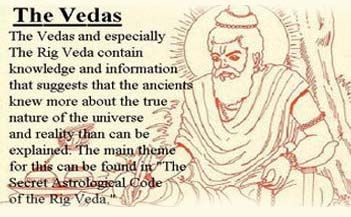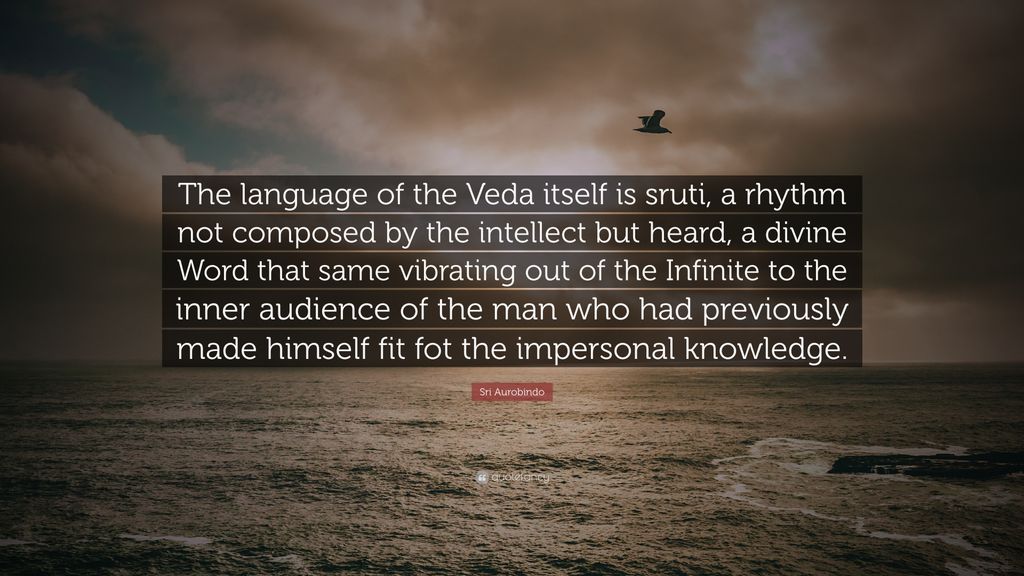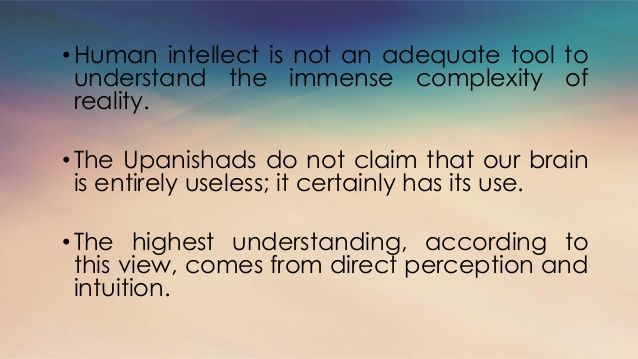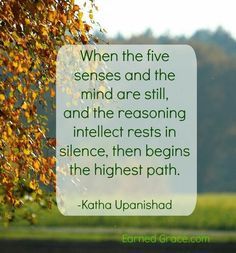Knowledge, Intellect And Intuition
Jun 08, 2019 • 118 views
According to Vedas, only when our intelligence chooses to turn towards the inner self, it gains wisdom or true knowledge. Otherwise what we generally make use of our brain is to engage it in discursive reasoning which will lead to that level of knowledge that is gained through skillful demonstration and logic but is still at its best, imperfect. This kind of reasoning pushes us to that intellectual level where we perceive things only externally and thus are subject to errors and incapacity.
On the other hand the integral, true knowledge or wisdom will hold the true nature and characteristics of the object or entity it is concerned with securely and nothing will be external to it. “Nothing is divided or in conflict with its all comprehensive self-awareness.”

Intuitive Knowledge is more immediate than sensory knowledge. It is considered to be perfect while all other forms of knowledge are considered imperfect and incomplete because it does not identify the relationship between the knower and the known. Dr. Radhakrishnan writes in his book, ‘The Principal Upanisads’, “All other knowledge is indirect and has only symbolic or representative value. The only generally effective knowledge is that which penetrates into the very nature of things. But in lower forms of knowledge, this penetration of the subject into the object is limited and partial. Scientific understanding assumes that an object can be known only if it is broken into its simpler constituents. If anything organic is handled in this manner, its significance is lost. By employing intuitive consciousness we know the object with less distortion and more actuality. We get close to perceiving the thing as it is.”This implies that there is a great possibility that whatever we know about self and the matter around, we never knew its true nature and will never know it if we continue with our distortive methods.

It is believed that knowledge is not in the external world but all is found within the self. It is in a cocoon of ignorance. Once this is removed, knowledge emerges beautifully. “What we are, that we behold, and what we behold, that we are.”Whatever the kind of attitude and level of wisdom one has, decides whether one is knowledgeable or just another ignorant human being. It is not said to undermine the report our senses give to our mind. Instead, it is the basis from which we proceed towards something higher and better.
Further, he explains, “Even as the conclusions of common sense are corrected by those of scientific understanding, the conclusions of the latter require to be corrected by the light of the spirit in us.”That implies that whatever the abstractions of the intellect, it will need to be converted into the actuality of spiritual experience to know the real truth or self. One’s logical reasoning is incapable of comprehending the living unity of God and man. And, just because one is logically incapable, it does not prove the actual impossibility.

Vedas emphasize that Absolute Reality can never be held together by discursive reasoning. We always objectify ‘being’ or externalize it completely while it is co-existent in man. That is why it is unknowable. We have to stop identifying existence with objectivity. “Spiritual reality is not revealed in the way in which objects of the natural world or principles of logic are apprehended.”

Thus, we can conclusively say that in the spiritual life, truth is not some reflection of any other reality but it is the experience of reality itself. “Those who know the truth, become the truth, brahma-vid brahmaiv bhavati.”Reality has to be a fact and to receive it in its true nature, it is to be apprehended by intuition, whether it is perceptual or not. We can rely on our logical knowledge to give us indirect approximation but it can not provide deeper, truer grasp of things and self.
